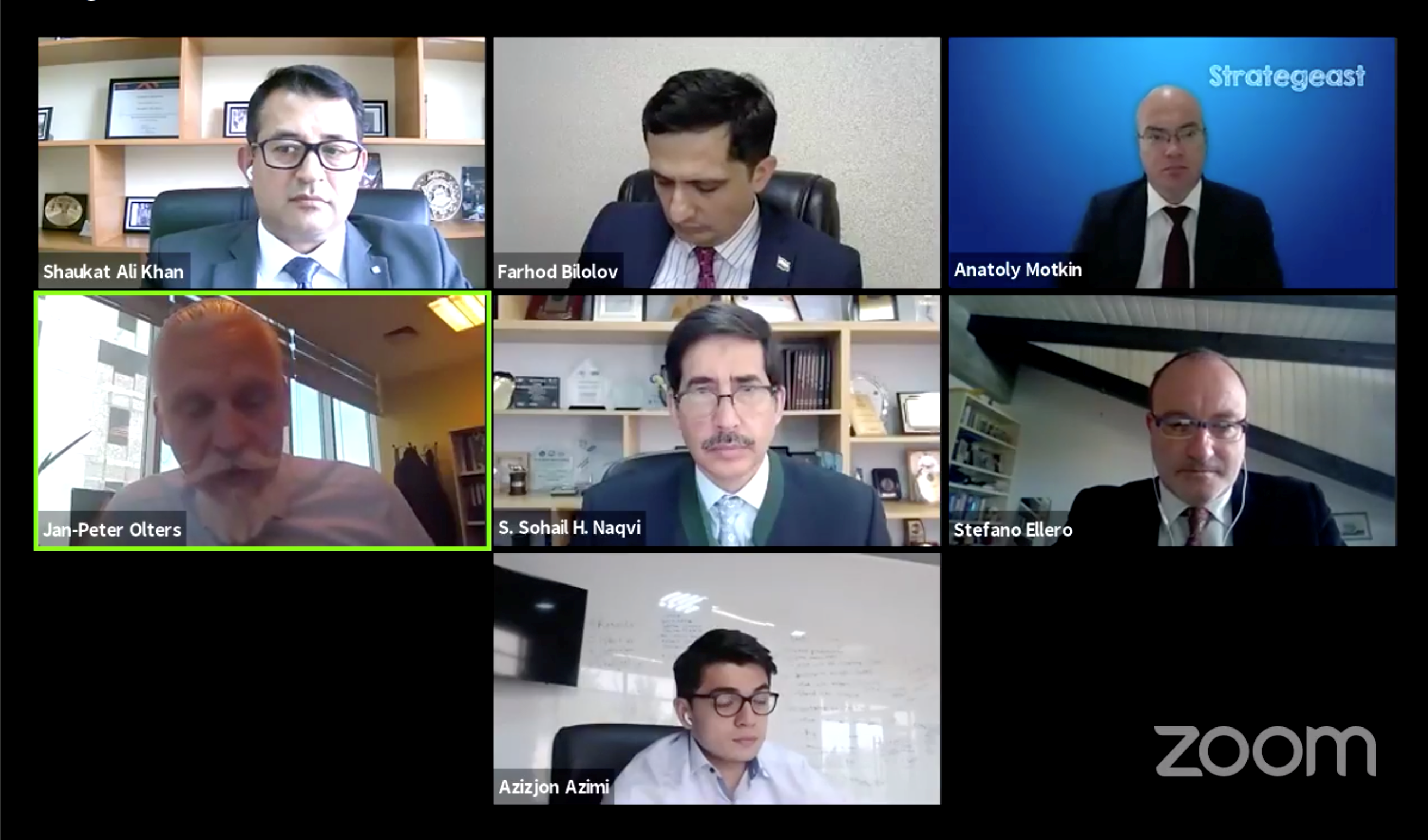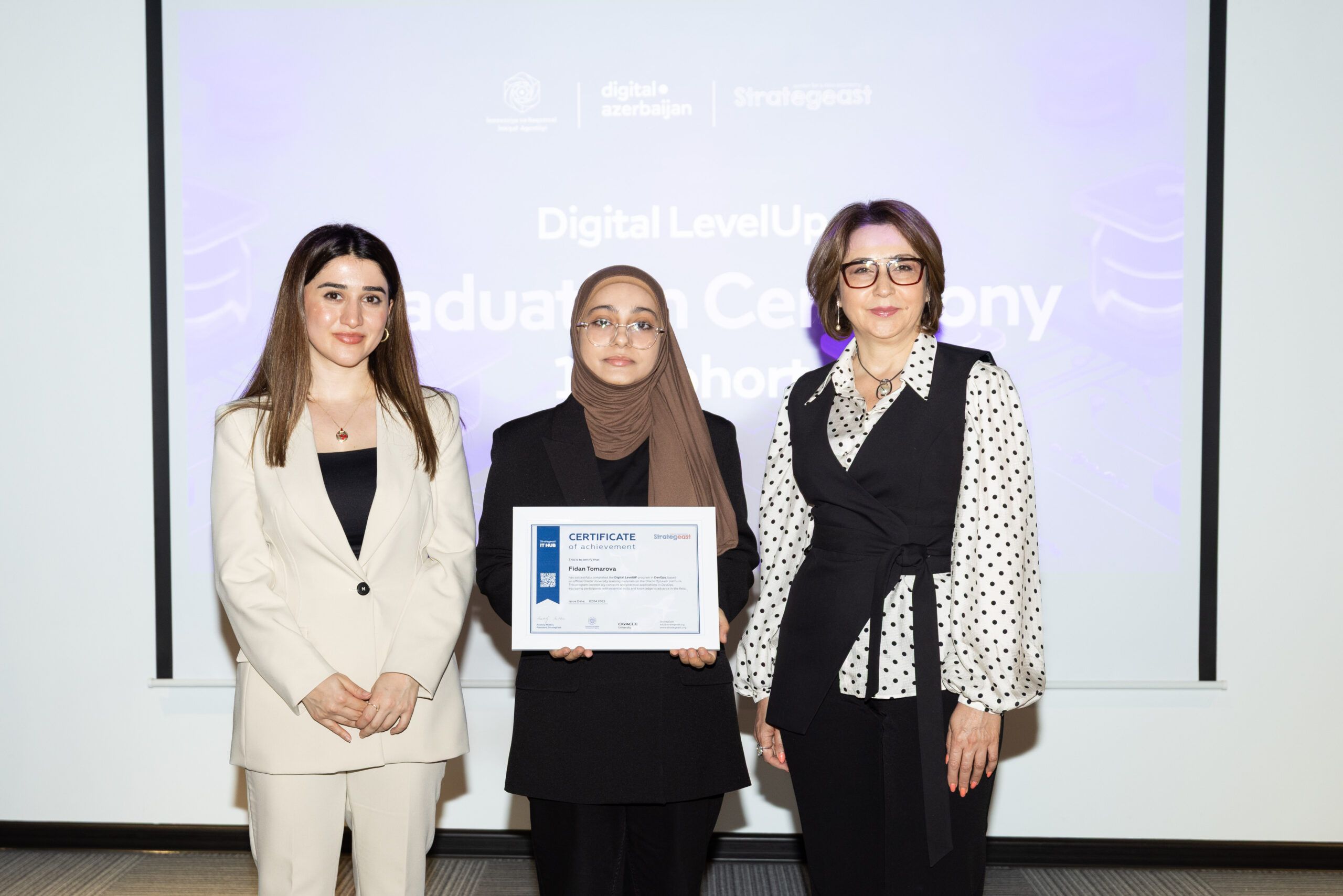Conference was hosted by the University of Central Asia in collaboration with the World Bank, European Union, and the StrategEast, in cooperation with the Ministry of Industry and New Technologies of the Republic of Tajikistan.
At this conference, international experts discussed the importance of digital economy in the development of the country, and presented their research findings related to the Republic of Tajikistan.
Opening the conference, Farhod Bilolzoda speaking on behalf of H.E. Sherali Kabir, Minister of Industry and New Technologies of Republic of Tajikistan announced the first steps of Tajikistan to digitalization.
“Tajikistan is at the nascent stage of the digital economy. At the same time, various digital tools and projects are already being introduced in the country. Thus, in Dushanbe, an electronic payment for public transport has been introduced, people already use electronic city cards. Commercial banks are promoting digitalization policies by offering new products and services. The plans are to create an IT park in Dushanbe with the help of international partners.”
Prof. Dr. S. Sohail H. Naqvi, Rector, University of Central Asia spoke about educational programs that improve digital literacy: “University of Central Asia offers programs that cultivate the knowledge and skills students need to integrate different approaches to solve problems and create innovations in their professional and personal life. Currently, the University provides not only degrees in computer science, but also provides short courses. We could not have been able to provide high-quality services without using digital tools.”
“Digitalization can address the legacy of climate change, and landlocked geographical position of the country,” says Jan-Peter Olters, Country Manager, World Bank Office in Republic of Tajikistan. “Partnership with the private sector will definitely increase the deployment of digital instruments. As 70% of the population in Tajikistan live in rural areas, digital transformation becomes critical in economic development of the country. High-speed Internet deployment, enabling regulatory environment, and more private investment are the key elements in the process of digitalization.”
According to Stefano Ellero, Head of Cooperation, European Union Delegation to the Republic of Tajikistan, digitalization is capable of ensuring better access to public services; improving education, healthcare and private sector development. “This becomes increasingly important amid the COVID pandemic. We encourage Tajikistan to make reforms to speed up the digital transformation. Digital connectivity can be a key element to economic development of the country. It requires all actors to be involved and it is not just about infrastructure investment, it is more about the reform that prioritizes and moves forward the digital agenda.”
Muhammadi Ibodulloev, Director of Public Fund Civil Internet Policy Initiative (CIPI) presented the analysis of the digital economy, which was prepared with the support of the EU based on the methodology and in partnership with the World Bank. “According to the World Bank’s 2016 Digital Adoption Index, Tajikistan ranks second in Central Asia. According to the UN e-Government Index 2020, Tajikistan is ahead only of Turkmenistan and lags behind other Central Asian countries. Digitization can bring benefits. Thus, the population receives savings of hundreds of millions of dollars due to lower prices for telecommunications, lower costs of government transactions. An increase in GDP is projected to reach $ 66 million by 2025.”
Azizjon Azimi, founder and chairman of TajRupt is convinced that AI is the foundation of digitalization in Tajikistan. “According to PwC study, AI will bring additional $ 15.7 billion to the world GDP by 2030. AI is based on data; in turn, data quality causes growth of AI. The more data you have, the more precise AI tools will be. We are the first AI in Central Asia with mentors from Stanford University. Tajrupt.ai introduces AI to the financial market in Tajikistan. It allows reducing operational costs of the banks and increasing accuracy of credit scores. Also, we launched the first AI Academy in Central Asia.”
Anatoly Motkin, President of StrategEast shares insights on how to create an IT ecosystem in Tajikistan. “We at StrategEast believe that Tajikistan has great potential for digital development. StrategEast is ready to start implementing its Global Minds Initiative in Tajikistan. The program is aimed at the creation and development of the IT sector. The result of the StrategEast program implementation will be the formation of a large group of “young professionals” – entrepreneurs and IT specialists, effectively integrated into the global economic and production processes. From a consumer of IT technology products, Tajikistan will become one of the producers of such advanced products.”
Kate Gromova, Co-founder of Women in Digital Transformation, Digital Development Consultant, World Bank introduced the topic of priorities and opportunities for digital skills initiatives in Tajikistan. “According to Cornell University, INSEAD and WIPO Global Innovation Index 2020, Tajikistan ranks 109th out of 129 countries in terms of human capital and research development level. Bottle-necks for digital transformation in Tajikistan include weak access to key enablers in schools that support quality and delivery of digital skills training; not producing the number of digital specialists needed; weak supply of “work-force-ready” graduates. Thus it is important to introduce digitals skills programs at schools. Cooperation of academia, government and private sector is also crucial.”
Shaukat Ali Khan, Chief Information Officer at the University of Central Asia moderated the discussion.




